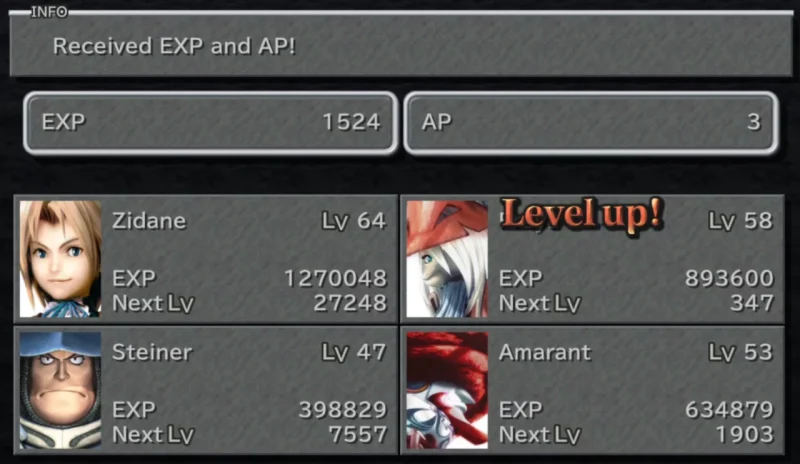Basic RPG Game Elements – RPG is indeed one of the popular genres in the world of video games because of its characteristics that make players rack their brains and hone their skills in crafting attacks. RPG or Role-Playing Game is a game where you will play a certain role that can affect the type of attack, the amount of damage, the type of weapon that can be used, and also the storyline in which you will live.
The Modern RPG genre was first brought to us by Dungeons & Dragons, a fantasy wargames Tabletop RPG published by Wizards of the Coast. The first Dungeon and Dragons game was designed by Gary Gygax and Dave Arneson and launched in early 1974. Then in 1997, Square Enix’s Final Fantasy VII brought the RPG genre to the peak of its popularity to this day.
But we won’t be talking about Dungeon and Dragons or Final Fantasy VII. In this article, we will talk about the 5 Basic RPG Game Elements that are commonly found in games. Curious about what they are? Check this out!
5 Basic RPG Game Elements
1. Setting and Story

Setting and Story are the most important basic elements of RPG games. The premise of most RPG games tasks the player with saving the world, or whichever level of society is threatened. There are often obstacles as the story progresses, such as the surprise appearance of an estranged sibling, or an enemy who becomes a friend or vice versa.
In-game worlds tend to be set in historical, fantasy, or science fiction universes, which allows players to do things they can’t do in real life, and helps players suspend their disbelief about rapid character growth. As stated earlier, RPGs are mostly presented in storytelling. This is one of the main entertainment factors of the genre.
Because of these basic RPG game elements, when you develop RPG games, you must pay attention to how the story and character development in your game. This can translate into the types of environments and settings you have for your game and the characters in the game. Traditionally, RPG games develop a plot based on the decisions the player character makes throughout the course of the game.
This kind of thing puts a lot of pressure on the game designer, who has to be able to integrate such ideas in the gameplay with the main storyline of the game. This also includes how to program the game to consider all the different paths in the story. To make the game more interesting and attractive, game designers can introduce special events in the story to make it more exciting or challenging.
2. Back Story

RPG games are certainly not complete without a story flash, which is also a basic element of RPG games. Flashbacks are usually at the beginning and end of each chapter or arc. But there are also those that insert back stories in the middle as a bridge for events that cannot be told as part of the gameplay.
These flashbacks usually tell about the beginning of a kingdom, the root of the conflict that becomes the foundation of the story, the birth of the main character, and the birth of the main antagonist, and can even insert the whole story in just a few lines. Those of you who like the RPG genre must be familiar with this element. Common flashbacks are told in the form of written narration and some are accompanied by a voiceover.
3. Exploration and Quest

Another basic element of RPG games is the ability for players to have freedom in exploring the world they are in. The more well-defined the world, the more interesting it is for players to explore and in return maintain their curiosity and engagement throughout the gameplay. It is delivered with a story narrative developed for RPG games.
Players will specifically be given the opportunity to walk around the world and explore their environment to meet their objectives. In Open-World RPGs, players are free to roam the world event after they have fulfilled their objectives, which are determined by the storyline.
In the basic elements of such RPG games, players can still explore any area that is no longer necessary for the continuation of the quest, but they can spend time exploring the area and perhaps meet some other NPC characters that they have never met before while completing their mission. But generally speaking, this isn’t done by most players, because once they’ve met their goal, they’re eager to move on to the next quest.
4. Inventory

The next basic RPG game elements is Inventory. As players progress along their journey in an RPG game, they interact with the world they are in. Storylines in games usually force players to interact with the surrounding world and other NPC characters. These interactions are usually in the form of some sort of buying and selling and bartering.
This form of interaction is done through narrative, to give the player a better sense of the quest, or real trade, in terms of items, up to the designers and developers of the game. Games like this need a way to keep track of all the interactions between the player character and everything and everyone. One of the systems used to track these interactions is the Inventory system.
5. levelling and experience

The last basic RPG game elements is the basic element of RPG games that are very attached to this genre, namely Experience and Leveling. To engage players and keep them hooked to the game, game designers use mechanics to enhance the performance of player characters. This progression is called leveling and experience in RPG games. Leveling and experience are key elements of any RPG. A good level and experience tree will define any RPG.
This allows players to evolve their avatars through the game and become functionally stronger by gaining more skills, points, and other resources needed to complete their quests. The ability to acquire new weapons, armor, clothing, or other game items specified in their world, players must meet certain thresholds in the game.
And those are the 5 Basic RPG game elements that are commonly found in games. RPG is indeed a unique genre, with all kinds of uniqueness including classes and sub-genres.












